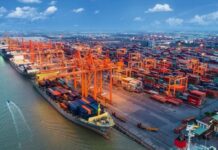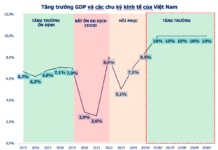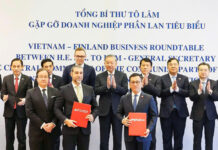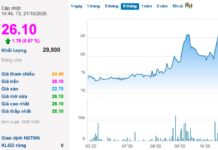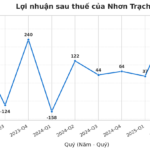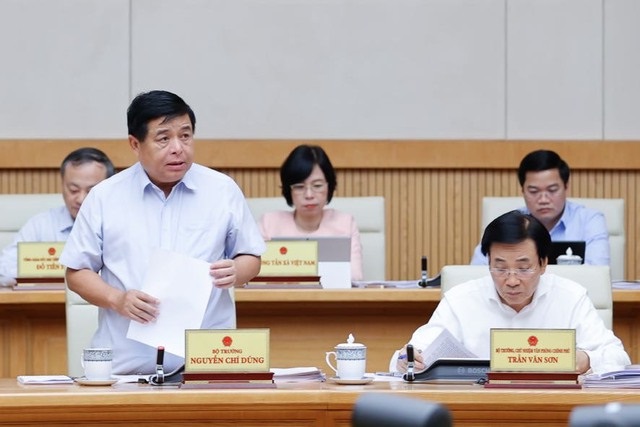
At a recent meeting, Minister of Planning and Investment Nguyen Chi Dung discussed the progress and challenges facing Vietnam’s economy.
|
Positive Results
Minister Nguyen Chi Dung’s report indicated that since the beginning of the year, ministries, sectors, and localities have been diligently implementing their tasks. Additionally, international businesses and organizations continue to be upbeat about Vietnam’s growth prospects.
In the first four months of the year, the macroeconomic situation has remained largely stable, inflation has been controlled, and major economic balances have been maintained. The exchange rate has been managed flexibly and proactively, with timely interventions to ensure a balance with interest rate policies and support economic growth. State budget revenue for the four-month period reached an estimated 43.1% of the target, representing a 10.1% increase compared to the same period last year.
Importantly, the total import-export turnover, exports, and imports increased by 15.2%, 15%, and 15.4%, respectively, compared to the same period last year; the estimated trade surplus is USD 8.4 billion; and exports to major markets such as the US, EU, and China have all witnessed significant growth. Major economic balances have been maintained, meeting the electricity demands of production, business, and daily life.
Furthermore, total registered FDI in the first four months reached nearly USD 9.3 billion, a 4.5% increase compared to the same period in 2023. Notably, newly registered FDI exceeded USD 7.1 billion, a 73.2% increase; while disbursed FDI reached USD 6.3 billion, a 7.4% increase. Many large global technology companies have expressed interest in investing in Vietnam’s electronics, chip, semiconductor, and renewable energy sectors. Public investment disbursement in the first four months reached 17.46% of the plan, higher than the same period in 2023 (15.65%), injecting a substantial amount of capital into the economy to support growth and development.
One of the bright spots in the economy has been the continued positive developments in production and business activities. Agricultural production and exports continue to maintain their growth momentum. The Industrial Production Index (IIP) in April increased by 6.3% compared to the same period last year; over the four-month period, it grew by 6% (compared to a 2.5% decline in the same period last year), with the processing and manufacturing industry increasing by 6.3% (compared to a 2.9% decline in the same period last year).
Meanwhile, business registration has shown positive signs. In April, the number of businesses entering and re-entering the market was 15,300, exceeding the number of businesses withdrawing from the market (13,600); the number of businesses awaiting dissolution procedures and the number of dissolved businesses decreased by 20.2% and 10.9%, respectively, compared to the same period last year. Over the four-month period, the number of businesses entering and re-entering the market reached nearly 81,300, a 3% increase compared to the same period last year; the number of businesses awaiting dissolution procedures and dissolved businesses was 25,500, a 5.3% decrease.
In addition, efforts have been made to improve the institutional and legal framework. Backlogs and obstacles are being addressed, and investment in strategic and critical infrastructure projects is being accelerated. New growth drivers for the economy are being promoted. Social welfare is being ensured, and people’s living standards continue to improve. Cultural sectors continue to receive attention and support. External relations, economic diplomacy, and high-level diplomatic activities, in particular, continue to be implemented proactively, positively, and effectively.
However, Minister Nguyen Chi Dung also acknowledged that there are still significant difficulties and challenges, including new factors emerging from both within and outside the economy, especially in controlling inflation, stabilizing the macroeconomic situation, and managing and promoting growth in the coming period.
“All levels, sectors, and localities need to continue to consistently and resolutely implement the development goals and orientations that have been set out; carry out forecasting work effectively; proactively provide advice and implement policies flexibly, proactively, and decisively; and ensure progress in the assigned tasks,” emphasized the Minister of Planning and Investment.
Key Tasks and Solutions for May and the Second Quarter
Based on the results achieved and the analysis of challenges and difficulties, the Ministry of Planning and Investment has proposed key tasks and solutions for May and the second quarter, highlighting the following groups of tasks and solutions:
Firstly, thoroughly prepare draft laws, resolutions, reports, and responses to the National Assembly at its 7th session, especially resolutions and reports submitted to the National Assembly and added to the agenda of the 7th session.
Secondly, urgently issue and submit to the Government in May guiding documents for implementing laws on land, real estate business, and housing; complete the dossier for reporting to the National Assembly at its 7th session to allow them to take effect in July.
Thirdly, ensure the requirements and progress of the implementation of the new wage regime from July 1, 2024, in line with the guidelines of the Party Central Committee and the resolutions of the National Assembly.
Fourthly, strongly promote and renew growth drivers in investment, consumption, and exports; fully exploit new growth drivers from digital transformation, green transformation, etc.
Fifthly, strictly control inflation, ensure macroeconomic stability, and maintain major economic balances. Closely monitor the situation, conduct effective forecasting, and proactively and effectively coordinate and harmonize macroeconomic policies, with a cautious, decisive, and proactive approach to应对ing potential developments.
Sixthly, concretize and effectively exploit international agreements and agreements reached by high-ranking leaders; fully seize new opportunities for growth and development.
Seventhly, focus on improving institutions and laws, administrative reform, reducing administrative procedures, and improving the investment and business environment. Research and propose amendments to the Law on the Issuance of Legal Documents. Accelerate the reorganization of administrative units at the district and commune levels; improve the efficiency of coordination among ministries, sectors, and localities in handling inter-sectoral issues; and continue to leverage the effectiveness of steering committees, working groups, and government members working with localities. Strengthen administrative discipline and order; address and overcome avoidance and shirking of responsibilities; and effectively implement regulations on protecting cadres who dare to think and act.
Eighthly, focus on social welfare, cultural development, education, health care, environmental protection, and prevention of natural disasters, droughts, water shortages, and saltwater intrusion. Urgently develop and effectively implement a plan to eliminate temporary and dilapidated housing nationwide. Proactively develop plans to regulate and ensure sufficient water for agricultural production, electricity generation, and daily life.
Concurrently, ensure national defense, security, and social order and safety. Enhance comprehensive and effective international integration; promote economic diplomacy; and continue to consolidate and constantly enhance the country’s international position and prestige. Strengthen information and propaganda, especially policy communication, to enhance the effectiveness of mass mobilization work and build social consensus.



